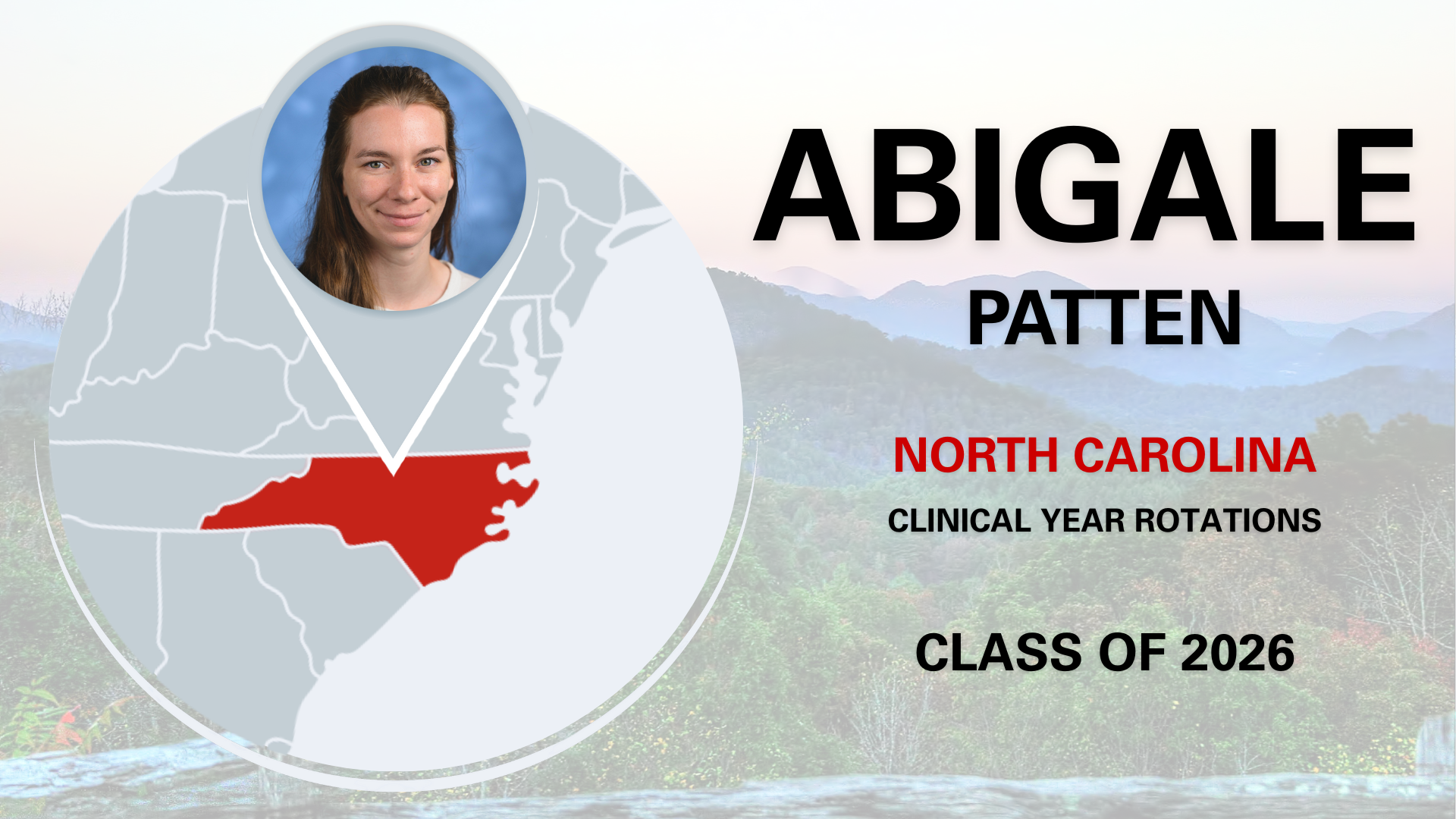DOLLARS IN, EXCELLENCE OUT
How the NC State College of Veterinary Medicine returns the state's investment in many critical and diverse ways.
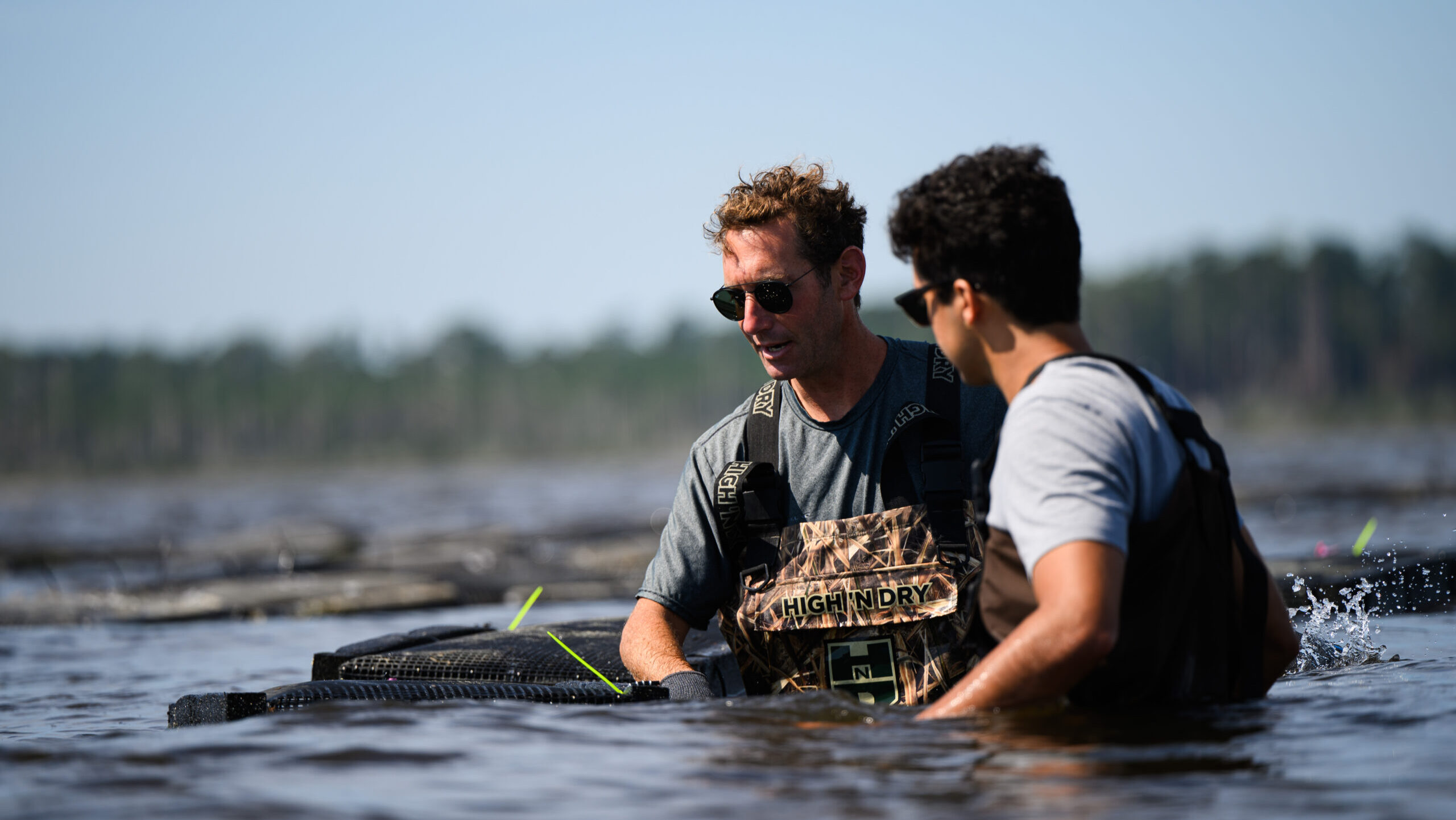
In the 40 years since the NC State College of Veterinary Medicine dedicated its main facility, the college has repaid the state’s continuing investment by becoming a generator of graduates schooled in the latest cutting-edge care and a hub of transformative research into animal and translational medicine.
Though the full impact of each veterinarian’s legacy is impossible to quantify, our nearly 3,500 veterinary graduates have gone on to improve the lives of countless animals and their loved ones across the state, country and world.
The majority of NC State CVM graduates choose to stay and practice in North Carolina. At least 80% of students in each class are from North Carolina, and about 60% of them remain in-state when they graduate, giving back to the communities that gave them their foundation.
Soon, there will be even more NC State-trained veterinary doctors to help fill a national shortage and to support North Carolina’s economy after state lawmakers approved increasing each class size from 100 to 125 students last year.
Many North Carolinians know the CVM from trusting its world-class veterinary hospital with their pets’ care. Nearly 60% of North Carolina households have pets, and over 30,000 animals – dogs and cats, plus birds, horses, rodents, reptiles and more – come through the NC State Veterinary Hospital each year.
But pets are just the start. From farms to fisheries, stables, zoos and research labs, NC State veterinarians and clinician scientists have a hand in caring for nearly every type of animal that calls North Carolina home, contributing to the state’s economic output in myriad ways.
“We are the veterinary school in the state of North Carolina,” says Dr. Barb Sherry, who served as the head of the Molecular Biomedical Sciences department before retiring 2023. “We are training the workforce that helps safeguard not only our food animals but also the pets that are our companions and help us with our health and well-being. That is a big mission.”
Raising healthier food animals
NC State’s research, diagnostics, hospital care and veterinarians help power North Carolina’s food animal industry, which produced $13.3 billion in farm cash receipts in 2021.
Nearly 70% of these cash receipts came from livestock, dairy and poultry production. The vet school excels at research into improving these industries and trains the veterinarians looking out for these animals’ welfare.
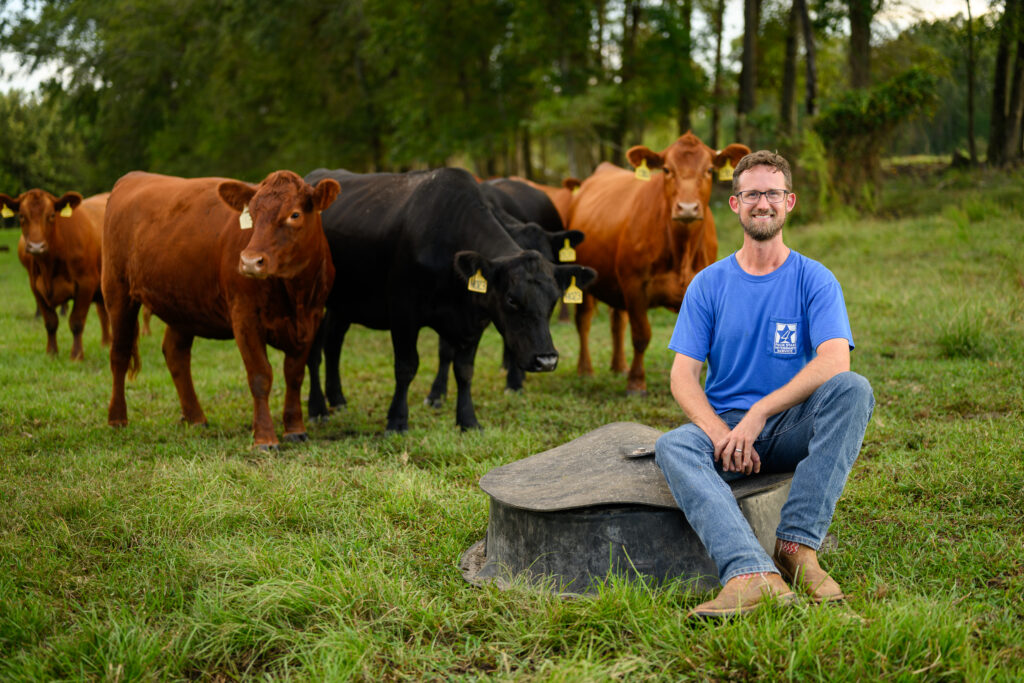
Dr. Harrison Dudley is a member of NC State’s DVM class of 2012 and a former clinical professor at the College of Veterinary Medicine, focused on beef cattle production and medicine.
Now an associate veterinarian with Livestock Veterinary Services in Kinston, one of the largest food animal-focused practices in Eastern North Carolina, Dudley still specializes in beef cattle but works with all types of livestock across the state. A typical day could take him to farms from the mountains to the coast, or from the Virginia border to the South Carolina border.
“Some of our biggest state revenues come from animal protein generation,” Dudley says. “When I went to vet school, being born and bred in North Carolina, I wanted to make an impact on my community, and I decided this was my way of doing that. I’m trying to put food on the American family’s plate and keep animals healthy along the way.”
Farm animal medicine is a small specialization with high demand, Dudley says. Farmers statewide rely on him for their herds’ health, and he would not be equipped to assist them without the education, mentorship and connections that he gained at NC State.
“I didn’t know anything about cows until I got to NC State, but the College of Veterinary Medicine encouraged and inspired my drive to work with food animals,” he says. “The faculty are very good at facilitating experiences and fostering relationships. Having the connections, both internationally and domestically, that the CVM professors had when I was going through is what got me to where I am today.”
Swine-focused veterinarians are a necessity in North Carolina, given that the state has the third-largest hog population in the nation – 8 million pigs in September, per the USDA.
Many of those responsible for ensuring the health and safety of the nation’s pork supply are NC State graduates. Dr. Glen Almond, professor of swine health and production management, estimates alumni oversee about 33% of the United States’ total pork production, based on breeding sow numbers at alumni-tended facilities.
The CVM’s swine experts work closely with veterinarians in the hog industry to identify and solve problems affecting pigs state- and nationwide. One example is an ongoing USDA-funded research study into porcine epidemic diarrhea virus, headed by Dr. Juliana Bonin Ferreira, assistant clinical professor of swine health and production medicine.
“When we join our forces, we can work together to give them some answers,” she says. “And we also have swine-oriented students completing externships or internships at these farms, spending time learning in the industry, so it’s a two-way road.”
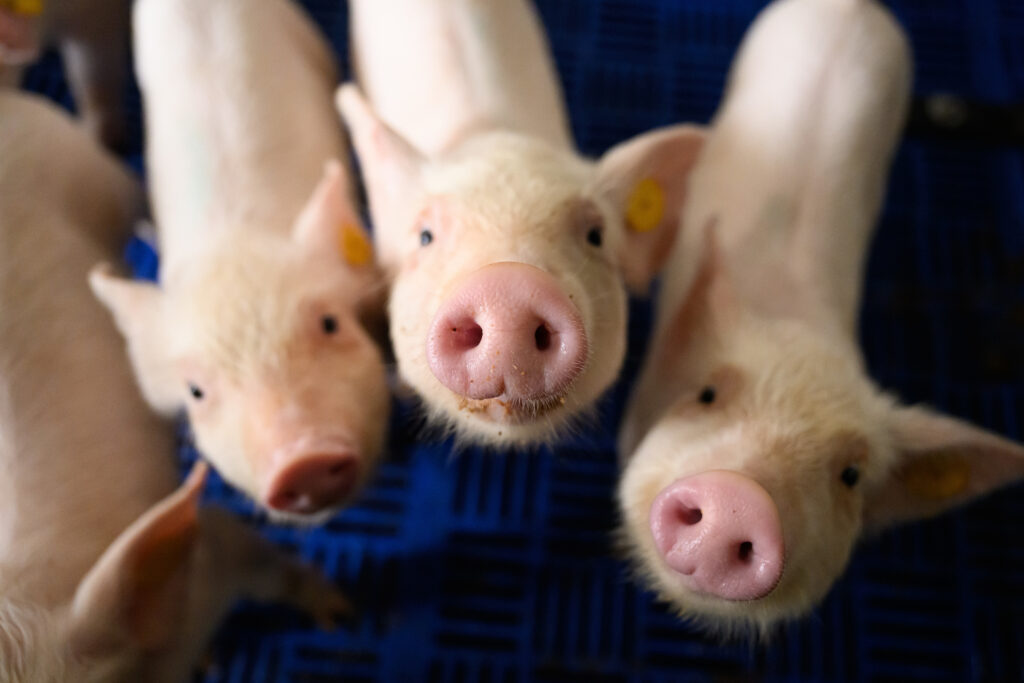
Epidemiologist Dr. Gustavo Machado is frequently contacted by swine production companies across the U.S. for his work modeling infectious diseases, including the devastating African swine fever. His lab is currently running projects in 18 states.
“Together with the other folks working with swine at the CVM, we make a huge contribution to increasing and improving the health of hog populations,” he says of his lab. “We help the industry build their biosecurity plans and support traceability, so in the case of an emergency we’re able to trace disease movements effectively and be able to actually stop it from spreading further.”
Poultry and eggs make up the single-largest share of North Carolina’s farm cash receipts, and our poultry experts are focused on nurturing healthier flocks at home and abroad.
Assistant professor Dr. Ravi Kulkarni recently received a nearly half-million-dollar grant from the USDA to develop the first vaccine to prevent clostridial dermatitis, an increasingly severe and often fatal disease in turkeys.
Last summer, through an 18-month program run in partnership with Ceva Animal Health, the CVM helped train four veterinarians from Latin America as poultry medicine specialists. The scholars from Brazil and Argentina learned the latest strategies for promoting poultry health and improving food supply safety, productivity and welfare.
Helping horses
North Carolina’s horse industry has a $2 billion impact statewide, and NC State has been at the forefront of equine care since the beginning.
Our equine center was established in the 1980s and features state-of-the-art imaging equipment including 3T MRI – the highest-quality MRI machine available – a standing CT, nuclear scintigraphy, ultrasound and endoscopy equipment as well as cutting-edge surgery equipment.
Because the care NC State provides the state’s large animals is so important, lawmakers approved a $70 million appropriation for expanding the college’s Large Animal Hospital and including a new Equine Veterinary Center in their latest budget.
“Horses are a critical part of the agricultural industry here, as well as important family members for many people throughout the state,” says Dr. Kate Meurs, dean of the NC State College of Veterinary Medicine. “The NC State College of Veterinary Medicine has been proud to provide critical medical care for these animals when they need us most. This facility also will allow us to provide better care for goats, sheep and cows, too.”
Casting a wide net
North Carolina’s commercial fishing industry brought an estimated $300 million to the state in 2021, providing over 5,500 jobs for fishers, retailers, restaurateurs and more.
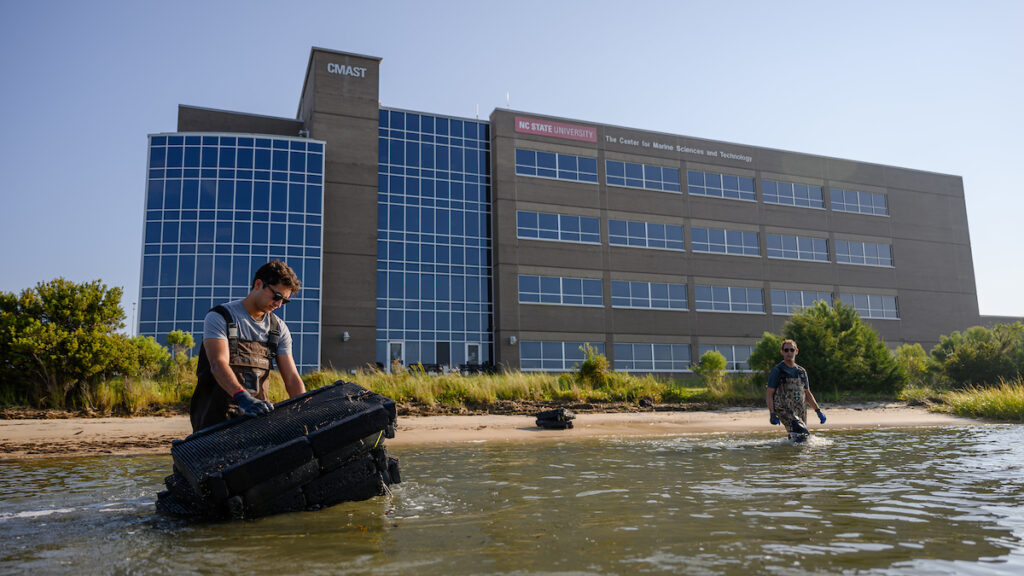
Marine ecosystems are essential to North Carolina’s economic and environmental health, and the NC State College of Veterinary Medicine supports their well-being through its research and training facility called the Center for Marine Sciences and Technology in Morehead City. This coastal classroom also guides students in caring for the breadth and depth of aquatic life.
“At CMAST, we have faculty who are engaged in research, in commercial fisheries, toxicology, food processing and across the board,” says Dr. Tal Ben-Horin, an assistant clinical professor and an aquatic pathologist. “CMAST is very much involved in applied strengths, applied research, in natural resources and conservation. We work in fisheries, coastal health, beach toxicology and commercial fishing, both here near the coast and even offshore.”
Ben-Horin specializes in helping the shellfish industry, particularly oysters, a nearly $7 million industry in 2021 and a favorite in North Carolina.
“We’ve seen a massive shift in the state to aquaculture, and oysters are at the top of the list,” Ben-Horin says. “There’s a market for it, there’s demand, and people want to produce them.”
Unfortunately, a lot of coastal oyster farms, which rely on seed oysters produced in regional hatcheries, experience “mortality events,” and Ben-Horin studies why. Some oysters transplanted from the unique environments of regional hatcheries can struggle to adapt to the isolated environment of coastal sounds, he says.
Ben-Horin’s research focuses on oyster breeding and understanding their pathology, including what carries across the genetic line.
“Like any new fishery or aquaculture or agriculture, when you do something new, you’re going to learn new things,” he says. “The ultimate goal is to develop genetic lines that work really well in North Carolina.”
Wild about animals
Our passion for all members of the animal kingdom also drives us to help conserve native species and protect those that now reside in North Carolina.
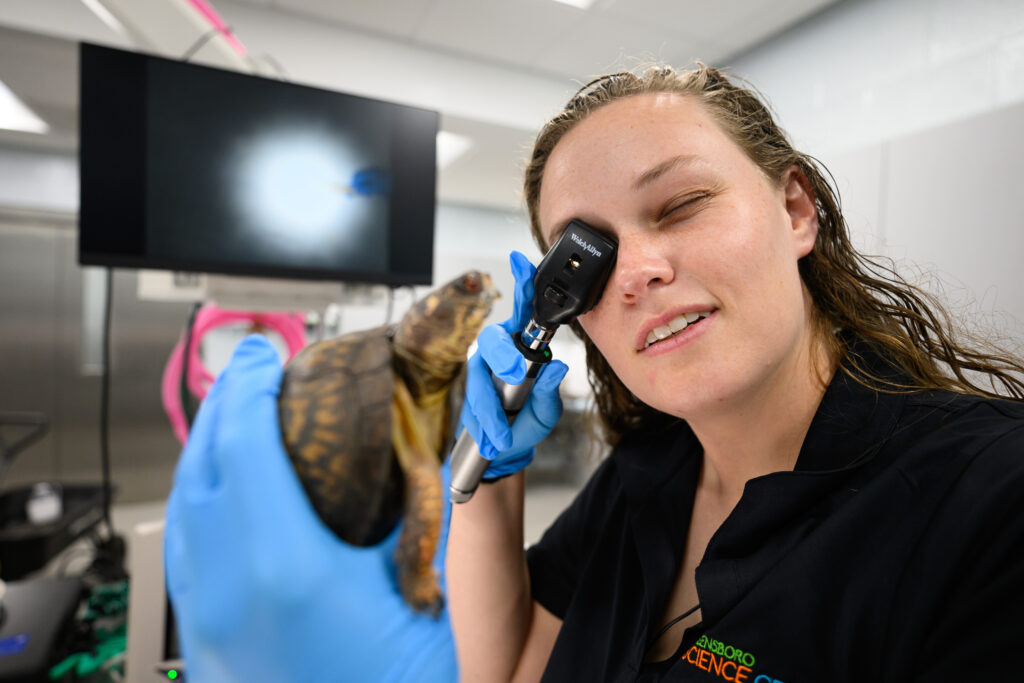
NC State CVM graduates support the animals of North Carolina’s zoos, aquariums and science and nature centers that contributed to a record-shattering $33.3 billion total spending by domestic and international visitors to North Carolina in 2022.
Dr. Tara Harrison, associate professor of zoo and exotic animal medicine, is among the faculty members who have cared for zoo animals at the Veterinary Hospital and on field calls. She says zoos count on the CVM’s expertise and advanced technology when their animals are in need.
“CVM faculty are also actively involved in national organizations that support zoo and aquarium animals and are publishing and presenting new research regularly for these animals,” she says. “Additionally, the CVM has a residency program that is educating future leaders of the zoo, exotics and aquarium veterinary field.”
NC State alumni are the lead veterinarians at the North Carolina Zoo, the North Carolina Aquariums at Fort Fisher and Pine Knoll Shores, the North Carolina Museum of Natural Sciences and the Greensboro Science Center. Faculty members also help care for the animals at the North Carolina Museum of Life and Science.
The college also plays a vital role in helping save critically endangered species on campus grounds. NC State faculty and students care for a captive pack of red wolves in partnership with the Saving Animals From Extinction program.
Fewer than 30 red wolves live in the wild, all on the North Carolina coast, and the Carnivore Conservation Crew works to breed and prepare members of our red wolf pack to join their numbers. NC State also cares for injured wild wolves and those living at our partner agencies, the Museum of Life and Science in Durham and the North Carolina Zoo.
“The NC State CVM is very involved in the care and conservation of wildlife in North Carolina, including protecting the most endangered canid in the world,” Harrison says. “Additionally, our Turtle Rescue Team cares for and rehabilitates hundreds of turtles, snakes and amphibians per year for re-release into their natural habitats.”
Making research breakthroughs
Innovation is at the heart of everything we do at the NC State College of Veterinary Medicine, and every day our researchers make strides to improve animal and human health globally.
We experienced more than 220% growth in research grant funding between 2011 and 2021, including a $6.3 million grant from the National Institutes of Health to build a swine biomedical research facility for gnotobiotic, transgenic and translational medicine.
That funding directly supports the nearly 160 faculty members representing more than 25 disciplines and working with more than 20 species that are leading research projects with broad impact.
Our 100,000-square-foot college Research Building includes state-of-the-art facilities for research teams, as well as BioSafety Level 3 lab for investigations into infectious diseases.
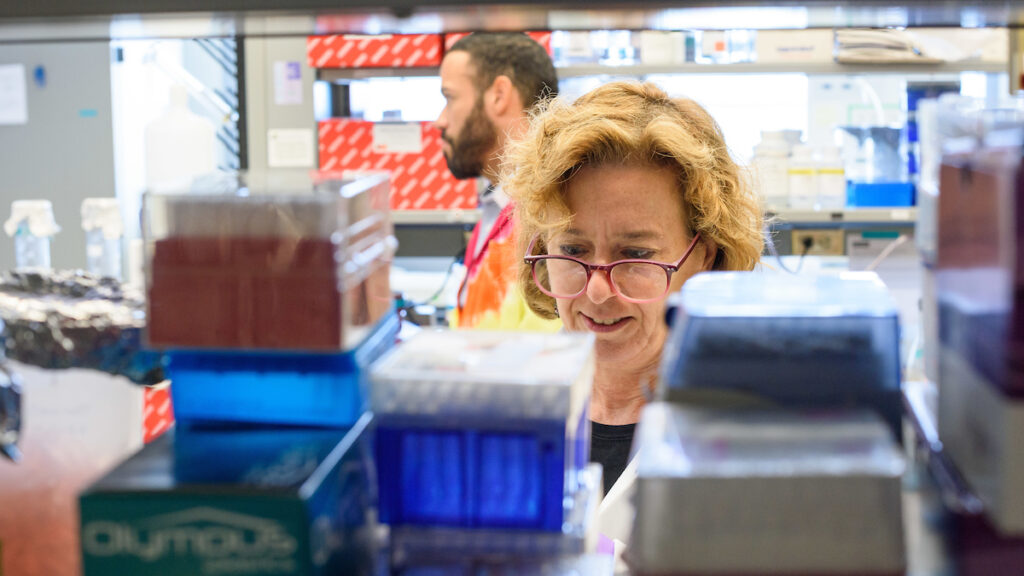
Our faculty researchers, research technicians and graduate students address critical issues in biomedical, agricultural and biological sciences through a variety of experimental approaches and techniques, ranging from basic discovery in molecular biology to application of new technology in the veterinary teaching hospital or the state livestock industry’s herds and flocks.
These innovators guide leading-edge studies in genomic sciences, gene therapy and vaccine development and cultivate diagnostic tests, new cancer immunotherapies and genetic research to prevent diseases in these populations.
Our biomedical researchers collaborate with national and international organizations to advance cures for animal and human diseases including cancer, lung disease and more. Our campus is one of 18 centers worldwide that collaborate with the World Health Organization on researching antimicrobial resistance and supporting the organization’s programs.
And, yes, our scientists’ work improves pets’ lives, too.
One recent study exploring whether low-dose radiation therapy could relieve the painful symptoms of feline idiopathic cystitis was so successful that clinicians immediately started offering the treatment to cats at the NC State Veterinary Hospital.
A legacy of excellence
The success of the NC State College of Veterinary Medicine leads to inspired and thankful community members, who in turn donate to the school. The NC State CVM has received over $231.4 million in private donations since 2016, with 91% coming from grateful clients of our Veterinary Hospital.
Every dollar goes toward training the next generation of veterinary healers and providing the resources for research that changes lives in the literal field and at home.
“By training the veterinarians in this state, we touch everybody,” says Sherry. “‘Economic impact’ doesn’t just mean ‘food animal.’ When you talk about somebody’s ability to come home at the end of a hard day and have a wonderful pet that gives them companionship and reduces their stress, they’re ready to go in that next day and give everything they have. That’s economic impact.”
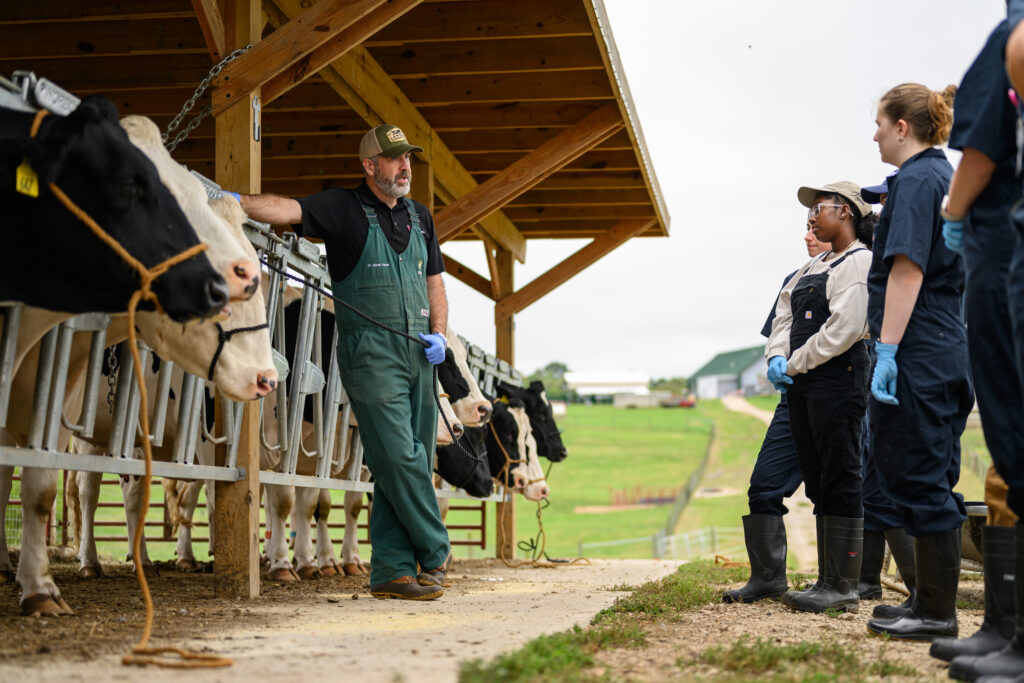
This story was originally published Nov. 14, 2023


